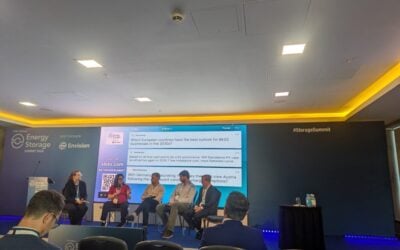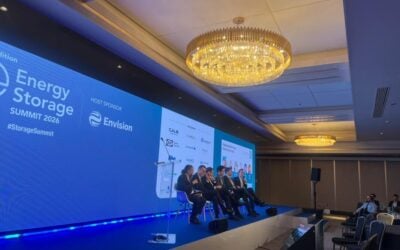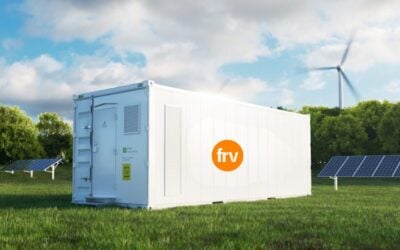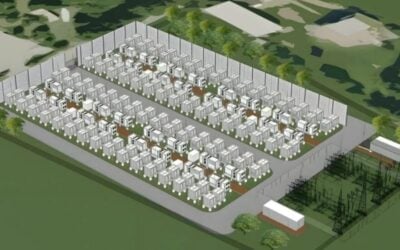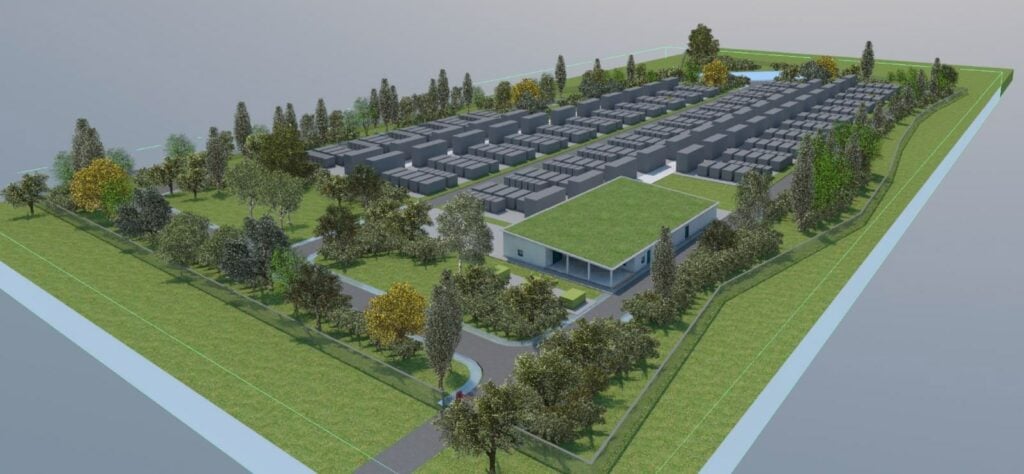
Global system integrator Fluence will deploy a 250MW ‘Grid Booster’ battery energy storage system for transmission system operator (TSO) TransnetBW, one of two such projects planned in Germany.
The NASDAQ-listed company will work with the TSO to deploy the energy storage system – called a Netzbooster in German – in the state of Badden-Wurttemberg, where TransnetBW operates the electricity grid. It is set to be completed in 2025 and will be a one-hour, i.e. 250MWh, system.
The Grid Booster will be built as a strategic network node along a transmission line and operated to inject or absorb power into the line in a way that mimics transmission flow lines. This will allow TransnetBW to forego installing extra transmission infrastructure lines, which would be more costly, have a larger footprint, and take longer to do.
It will allow the existing transmission infrastructure to be operated more efficiently by, for example, lowering the need for preventive redispatch measures and conventional network reinforcements and operating costs.
Try Premium for just $1
- Full premium access for the first month at only $1
- Converts to an annual rate after 30 days unless cancelled
- Cancel anytime during the trial period
Premium Benefits
- Expert industry analysis and interviews
- Digital access to PV Tech Power journal
- Exclusive event discounts
Or get the full Premium subscription right away
Or continue reading this article for free
The initiative was first introduced three years ago, reported on at the time by Energy-Storage.news.
The idea has been considered in several countries across the world, sometimes called a ‘virtual transmission line’. Fluence is involved in initiatives in Australia and Lithuania we’ve previously reported on.
Storage-as-transmission asset to ease renewable energy bottlenecks
Germany’s need for it is fairly unique in that the vast majority of its new renewable energy in the form of wind is located in the north of the country while its economic activity is more concentrated in the south, where legacy power plants are being shut down.
The Grid Booster will ease the bottlenecks which stem from transporting that wind energy across the country, while also providing backup power to maintain grid stability.
“Realising the Netzbooster project marks a turning point to accelerate the buildout of energy storage at the transmission network level in Germany and across Europe,” said Paul McCusker, SVP & President EMEA at Fluence.
In a recent interview with Energy-Storage.news at RE+ in California, Kiran Kumaraswamy, Fluence’s VP of growth and head of commercial discussed said that regulatory considerations were the main limiting factor for using batteries as a transmission asset, which represent an “extraordinary value proposition”.
Fluence already has underway a similar energy storage-as-transmission asset project in Lithuania, delivering 200MW/200MWh of batteries across four systems for national transmission operator LitGrid.
Pointing towards today’s announcement, Kumaraswamy said that Germany’s projects were ‘just beginning to transact’ while the US would be helped by having regulations that clarify the use of energy storage for such ‘Grid Booster’ use cases.
The companies said the TransnetBW project is the largest in the world of its kind. It is also likely to be the largest battery storage project in Germany to be officially announced, and certainly the largest that has given a firm operational date.
The other Grid Booster project has been announced by another TSO, TenneT, which is planning two 100MW one-hour systems, also for completion in 2025. If all three went online today, they would increase the size of the German utility-scale energy storage market by around two-thirds.

